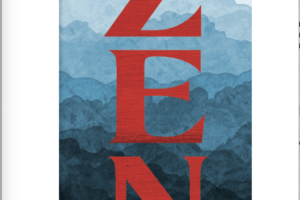Kongo Roshi was born Richard Valentine Langlois in Chicago Illinois on January 25, 1935. His first love was the piano that he began playing at the age of 10. Though classically trained he would go on to work as a professional jazz musician. He became interested in philosophy from an early age. He was especially interested in Nietzsche, the Bhagavad Gita which led to more and more interest in Eastern philosophy. He furthered his spiritual study with Swami Vishwananda of the Vedanta Society and then became a disciple of Sri Nerode with whom he studied all of the yogas including intense meditation practice. Ultimately Kongo Roshi was let to Zen and met Matsuoka Roshi in 1960. He became Matsuoka Roshi’s disciple in 1963 and was given the name Kongo, meaning diamond. In 1966, Kongo Roshi began studying Tai Chi Chuan with Professor Ho Chi-kwang who over the years imparted a thorough grounding in the spirit and internal connections with Confucianism, Taoism, Buddhism and the Chinese Ch’an and Taoist meditation traditions. Kongo Roshi was ordained a Soto Zen Priest in 1967 and in 1970 was appointed Abbot of the Zen Buddhist Temple of Chicago when Matsuoka Roshi went to Long Beach CA to start a new Temple there. In 1974, Matsuoka Roshi bestowed Dharma Transmission on Rev. Langlois. Kongo Roshi was a dynamic and insightful leader of the Temple until his passing in 1999.
—————————
Soon after I first met Roshi in the early 70s, I knew that it was very important for me to become his disciple. Roshi’s depth of understanding and keen interest in helping serious students, along with a very approachable midwestern style, was a wonderful combination for an American Zen student at that time. All of Roshi’s key teachers, Sri Nerode, Matsuoka Roshi, and Professor Ho Chi Kwang, were from Asia, yet Roshi remained as American as the jazz piano which he adeptly played.
In 1976, I moved from rural southern Illinois to Chicago and became Roshi’s disciple with a single-minded purpose of deepening my understanding of Zen and myself, hopefully for the benefit of all. Any concern of livelihood, shelter, adjustment to city life, and so on were secondary. This move and the resulting time this afforded to study with Roshi has been a major defining element in my life and time that I will always cherish. So much ground was covered, so many insights gleaned that would fill many pages and still fall far short. However, I would like to share and weave together some of the central themes that have made a significant impact on my life.
Becoming Roshi’s disciple was like becoming part of his family and then some. In my early years as a disciple, the Temple responsibilities of leading the chanting and giving instruction often filled me with doubt and fear born of excessive self-consciousness. My heart would race with anxiety. Roshi would always counsel that this anxiousness was a good a sign of strong energy and enthusiasm which simply needed to be properly directed and channeled. My problems were a result of poor mental habits and focus that would be resolved through strong zazen (Zen meditation) practice and determination. Discipleship gave me a great opportunity to work through these and many other issues and refine and better focus my energies. I learned that it was a matter of simply shifting my emphasis and perspective and not clinging to these poor mental habits and self-doubts. It boiled down to a matter of letting go. Roshi was personally familiar with this problem as he also had suffered from a sort of stage fright problem during his early years as a musician. As Roshi put it, “I found this condition totally unacceptable,” and he resolved to overcome it.
In his teaching, Roshi always emphasized the great importance of daily zazen practice, especially for practitioners that live in the secular world outside of a monastery. He would liken our lay practice to the smelting process that is used to develop high quality steel. Steel is heated and then hammered until it is cooled and then reheated to be hammered again, cooled again and again in an ongoing process that produces the strongest resulting product. As Zen students we dive into the heat of our activities during the day but also find time for reflection and introspection in our daily zazen. Roshi emphasized that this was the best formula for cultivating a strong, balanced, sane, human being. This is the Middle Way of Shakyamuni Buddha. I found this smelting process especially true as a disciple. Where the fire of everyday life could foster confusion, imbalance but invigorate, while zazen provided the daily clarity, the daily insight, the daily understanding to deeply cool and settle, and center ourselves, ready for the next day’s challenges and fire. Roshi would refer to zazen as the antidote for our fast, crazy 20th Century.
This philosophy for life was further refined in Roshi’s concept of the warrior spirit. Roshi never glorified warfare, however he was very impressed by the single-minded spirit and selflessness embodied by the medieval Japanese warriors known as the samurai. The samurai warriors’ lives depended on a fearlessness and selflessness in their approach to life. A single doubt or fear could cause a momentary lack of concentration that could prove fatal. Zen was the religion of the samurai warrior class in Japan. They cultivated complete selflessness in their zazen, no fear, beyond fear, and beyond self-grasping. Roshi found this to be a wonderfully inspiring image for all of us as Zen practitioners. We are all confronted with many challenges each day. We may allow doubt, fear, and fatigue to weaken our resolve. Zazen can be a tremendous aid in cultivating selflessness, fearlessness, and energy that permits us to act, speak and live genuinely and deeply from the center of our being without any reservation. Allowing us to live more and more closely within the context of our original nature as human beings. Freeing us to do just what needs to be done, free of habitual self-doubt, free of habitual second-guessing and excessive self-analyzing. As Roshi would say, “Living with absolute self-confidence.” One of Roshi’s favorite stories related to a question asked of Sensei, Matsuoka Roshi, during tea following a meditation service. A Zen student asked about the purpose of zazen practice. After some deliberation Sensei responded, “Confidence in everyday life.” For Roshi, that about summed it all up in a nutshell. Stop with the incessant intellectualization and simply live confidently. Just Be! Zazen will lead us down the path of the Buddha to true self-understanding and allow us to discover our true complete innermost nature that has always been there though veiled by our self-clinging based ignorance and delusions.
Finally, I would like to add that Roshi was a large advocate for students continually challenging themselves to promote growth. Often we get stuck in a certain concept of ourselves that can become quite limiting over time. Roshi advocated continuing to challenge these concepts and break through them. This will help us from falling into a sense of complacency, the “couch potato” syndrome that can stifle our growth and creativity. This idea of challenging ourselves may include aspiring to something new that one is interested in, or resolving to achieve something and following through. This is a great way to work through our doubts and fears, by just letting go of our doubts and fears. This should be an ongoing process to foster self-discovery and growth that can work hand in hand with our zazen practice. Zazen is the key tool for working on this ability to let go of clinging to self and learning to get into the flow of our life. The interesting thing about this process is that regardless of the outcome, we have learned something, there has been growth. Let’s face it, we learn more from our disappointments than our successes anyway. We actually need to get beyond the idea of success and failure and look at what we have learned. Even letting go of the results so our effort is completely untainted and pure. So there is truly nothing to loose and everything to gain; a greater and greater understanding of who we are as human beings and what our life is all about.
So I have scratched the surface. Being a student and disciple of Kongo Roshi over the years has been an immeasurably enriching experience. Roshi’s knowledge and mastery of many subjects, from music to philosophy, from meditation and the yogas to chi-gung and tai chi chuan was truly vast. However, it was Roshi’s conviction, compassion, and humanity for which he was respected and loved the most. Truly the years that we have all shared with Kongo Roshi have been a wonderful string of pearls that we all will treasure.
In Gassho,
Zenku Jerry Smyers








